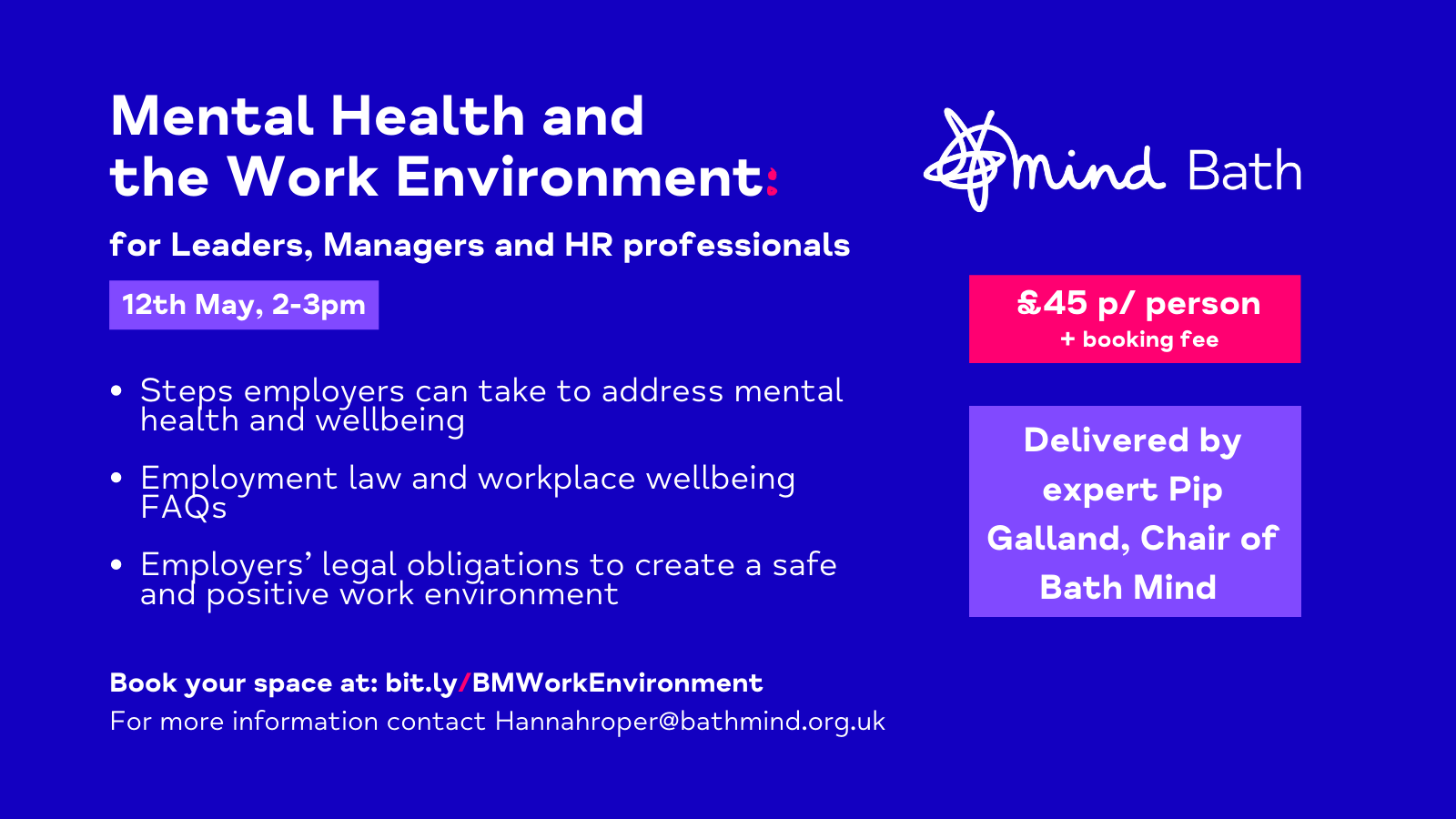Mental Health and the Work Environment Event
This week marks Mental Health Awareness Week 2021 and this year’s theme is the impact of nature on our mental health. In this article, our Chair of Trustees and Employment Law Solicitor, Pip Galland, provides three practical steps for employers to take in order to create a happy work environment for their employees.
To celebrate the week, Pip will be delivering a session on the impact of mental health in a changing (post-pandemic) business landscape,
Three steps for employers to take to create a positive work environment
The environment in which we live (and for many, now work) is made up of a number of mental and physical factors. Whilst it goes with our saying that green spaces and our conventional ideas of nature have never been more important given the impact of the pandemic; as adults, we spend a great of time in the workplace. It therefore follows that our work “environment” can have a significant impact on our mental health and emotional wellbeing, for better or worse.
Employers have legal obligations to create safe places of work and to ensure that employees who are suffering with their mental health are not discriminated against. However, there are also many practical steps that employers can take to create an environment for employees to thrive at work.
1. Encourage managers and mentors to engage in conversations about wellbeing
Working in a supportive team is hugely important for our mental health at work. Managers and mentors should take the time to ask the members of their team how they are. Giving your employees the freedom and confidential space to talk about their feelings can help them maintain their mental health and deal with difficult issues at work.
Encourage employees that talking about their feelings isn’t a sign of weakness; it is part of taking charge of their wellbeing and doing what they can to stay healthy. An employer’s greatest asset is its employees and a healthy workforce makes for a thriving business.
Remember that when leaders are prepared to have open conversations, it encourages others to do the same.
2. Value the skills that lived experience of mental health problems bring to your workforce
For employers to benefit from a diverse workforce, it’s important to value the skills that employees who have experienced mental health problems bring to your workforce. Many employees who have suffered with their mental health are able to spot the signs and symptoms of poor mental health in others. Investing in peer support, mentoring and Mental Health First Aid schemes can be hugely beneficial for creating a supportive workplace culture. Give people positive reasons to disclose their wellbeing by establishing a culture that values authenticity and openness. Again for this to be impactful, this should be led from the top of the organisation.
3. Make mental health and wellbeing a strategic priority
Showing your employees that you are committed to supporting their wellbeing involves more than just telling them that you are. It is important to make mental health and wellbeing a strategic priority. Designate board champions, and ensure leaders and managers are responsible for implementing mental health programmes.
Staff surveys are also a great way to check in with employees to understand how they’re feeling, what’s working well, and what can be improved to enable them to work effectively, stay safe and maintain their wellbeing. This data can then be used to plan and deliver action workplace policies.
Recognise and celebrate the impact of existing employee benefits and corporate social responsibility activities on the mental health and wellbeing of staff.
On the 12th of May, Pip will be hosting an event to give advice on how to create a workplace that supports your employees’ mental health.
Posted on: 10th May 2021

